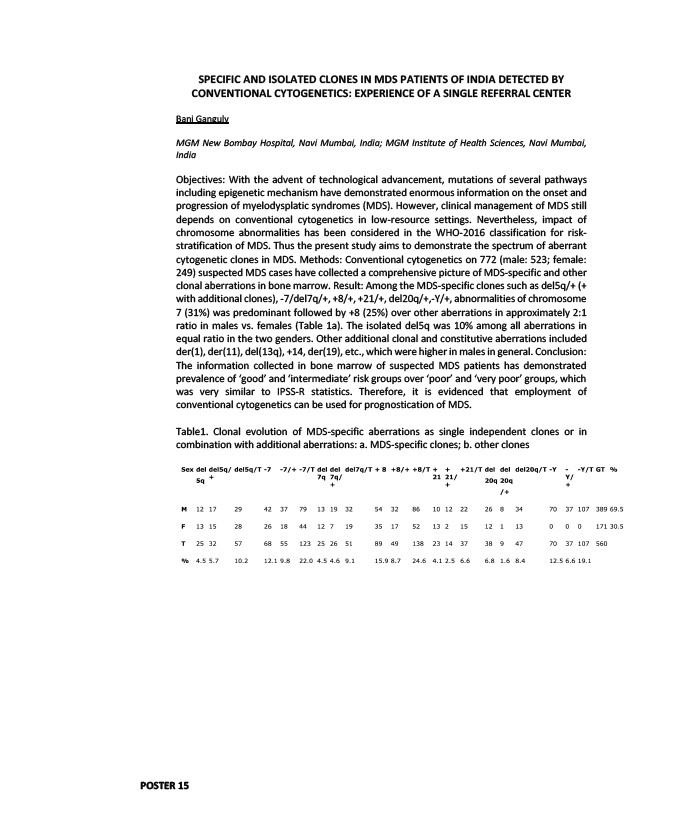
SPECIFIC AND ISOLATED CLONES IN MDS PATIENTS OF INDIA DETECTED BY
CONVENTIONAL CYTOGENETICS: EXPERIENCE OF A SINGLE REFERRAL CENTER
Bani Ganguly
MGM New Bombay Hospital, Navi Mumbai, India; MGM Institute of Health Sciences, Navi Mumbai,
India
Objectives: With the advent of technological advancement, mutations of several pathways
including epigenetic mechanism have demonstrated enormous information on the onset and
progression of myelodysplatic syndromes (MDS). However, clinical management of MDS still
depends on conventional cytogenetics in low-resource settings. Nevertheless, impact of
chromosome abnormalities has been considered in the WHO-2016 classification for risk-stratification
of MDS. Thus the present study aims to demonstrate the spectrum of aberrant
cytogenetic clones in MDS. Methods: Conventional cytogenetics on 772 (male: 523; female:
249) suspected MDS cases have collected a comprehensive picture of MDS-specific and other
clonal aberrations in bone marrow. Result: Among the MDS-specific clones such as del5q/+ (+
with additional clones), -7/del7q/+, +8/+, +21/+, del20q/+,-Y/+, abnormalities of chromosome
7 (31%) was predominant followed by +8 (25%) over other aberrations in approximately 2:1
ratio in males vs. females (Table 1a). The isolated del5q was 10% among all aberrations in
equal ratio in the two genders. Other additional clonal and constitutive aberrations included
der(1), der(11), del(13q), +14, der(19), etc., which were higher in males in general. Conclusion:
The information collected in bone marrow of suspected MDS patients has demonstrated
prevalence of ‘good’ and ‘intermediate’ risk groups over ‘poor’ and ‘very poor’ groups, which
was very similar to IPSS-R statistics. Therefore, it is evidenced that employment of
conventional cytogenetics can be used for prognostication of MDS.
Table1. Clonal evolution of MDS-specific aberrations as single independent clones or in
combination with additional aberrations: a. MDS-specific clones; b. other clones
POSTER 15